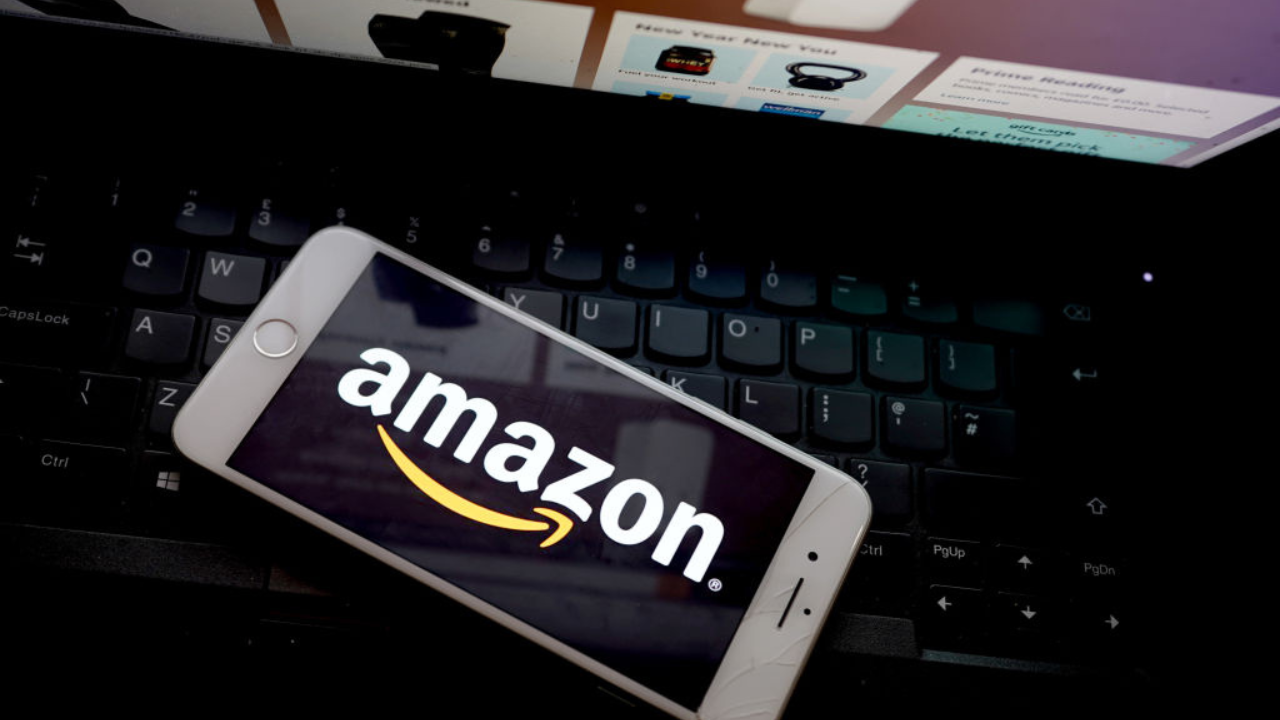We bring news that matters to your inbox, to help you stay informed and entertained.
Terms of Use and Privacy Policy Agreement
WELCOME TO THE FAMILY! Please check your email for confirmation from us.
The conglomerate states on its website that the badge program is intended for businesses that employ fewer than 100 people and have less than $50 million in annual revenues.
Here at theGrio, we love any opportunity to shop and support Black-owned businesses, both big and small.
If you’re an avid Amazon shopper, you may have noticed the “Small Business” or “Black-owned business” badges while roaming the virtual isles. Well, this week, Business Insider — citing the technology publication, The Information — reported that Amazon has been wrongly categorizing vendors on the site as “small” and “Black-owned.”
Amazon gave brands like Chomps — a grass-fed beef jerk firm — a Black-owned business badge, though founders Rashid Ali and Pete Maldonado are not Black. Similarly, the e-commerce site awarded “Small Business” badges to “multinational corporations with thousands of employees.”
However, on its website, Amazon states that for the badge program it follows “Gartner’s definition of small business, which includes businesses that employ fewer than 100 people and have less than $50 million in annual revenues.”
When The Information contacted Amazon for comment, Amazon removed the badges from some of the erroneously categorized products, but some still remain on the site. In comments to Insider, a company spokesperson stated that Amazon monitors and makes adjustments to the badge program.
“We are committed to ensuring that the badge is a helpful shopping tool for customers to discover small business brand owners and we are continuously auditing and refining the information used to award the badge to ensure a trustworthy and accurate experience,” the spokesperson said. “If the badge is awarded in error we move quickly to make appropriate updates.”
Despite Amazon’s efforts to even the playing field with the program, the reality is that running a small business on Amazon can be hard, Insider reported. Small Business owner Rabbi Yael Buechler, who tried to sell Jewish fashion accessories, explained how the platform required extra monthly fees, thus limiting her profits. She wrote in an Insider op-ed piece that competitors overshadowed her products on the site.
Though not all businesses have reported seeing a boost from Amazon’s badges, there is potential for the badges to increase sales. Insider cited an IBM study that found that product downloads increased by 64% after digital badges were implemented.
Yet, there are concerns about whether Amazon’s badge programs is truly intended to support small and Black-owned businesses or simply benefit Amazon’s bottom line. Stacey Mitchell, co-director of the Institute for Local Self-Reliance and an Amazon critic, suggested to The Information that it is the latter. “It’s very much in Amazon’s interest to try to suggest that, in fact, they’re supporting small businesses rather than eating their lunch,” Mitchell said.
Some note the fact that large companies like Black Rifle Coffee Co. and SwissGear, which generated millions of dollars in revenue, received the badge raises questions about the program’s criteria and effectiveness.
“If they’re not managing this program, they’re being negligent, and they’re disadvantaging true small businesses,” said Jason Boyce, the CEO of Avenue7Media, which helps companies sell on Amazon. “And they’re giving companies that don’t need the help an unfair advantage.”
TheGrio is FREE on your TV via Apple TV, Amazon Fire, Roku, and Android TV. TheGrio’s Black Podcast Network is free too. Download theGrio mobile apps today! Listen to ‘Writing Black‘ with Maiysha Kai.

